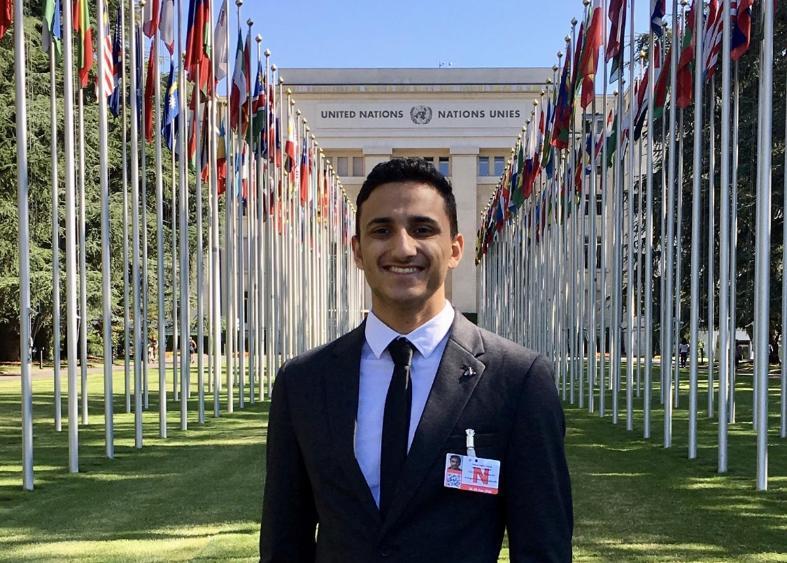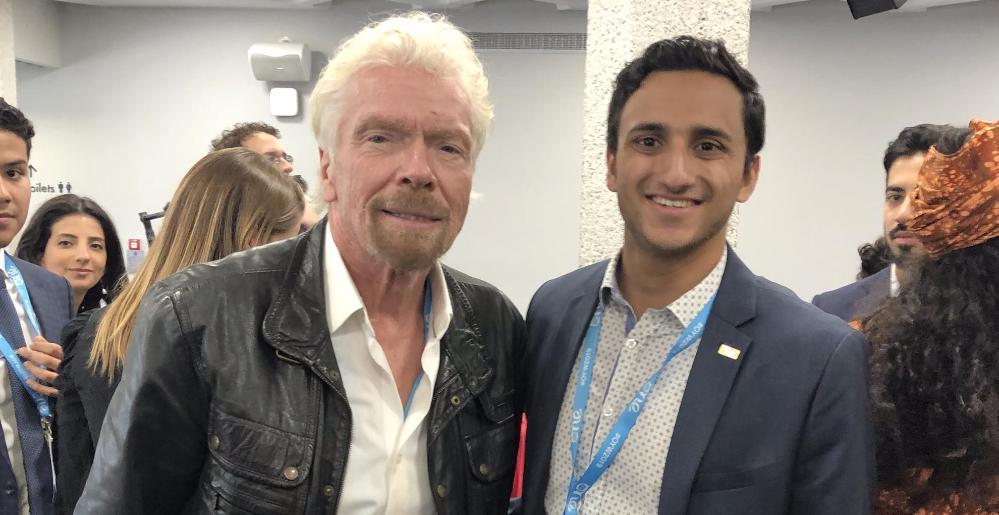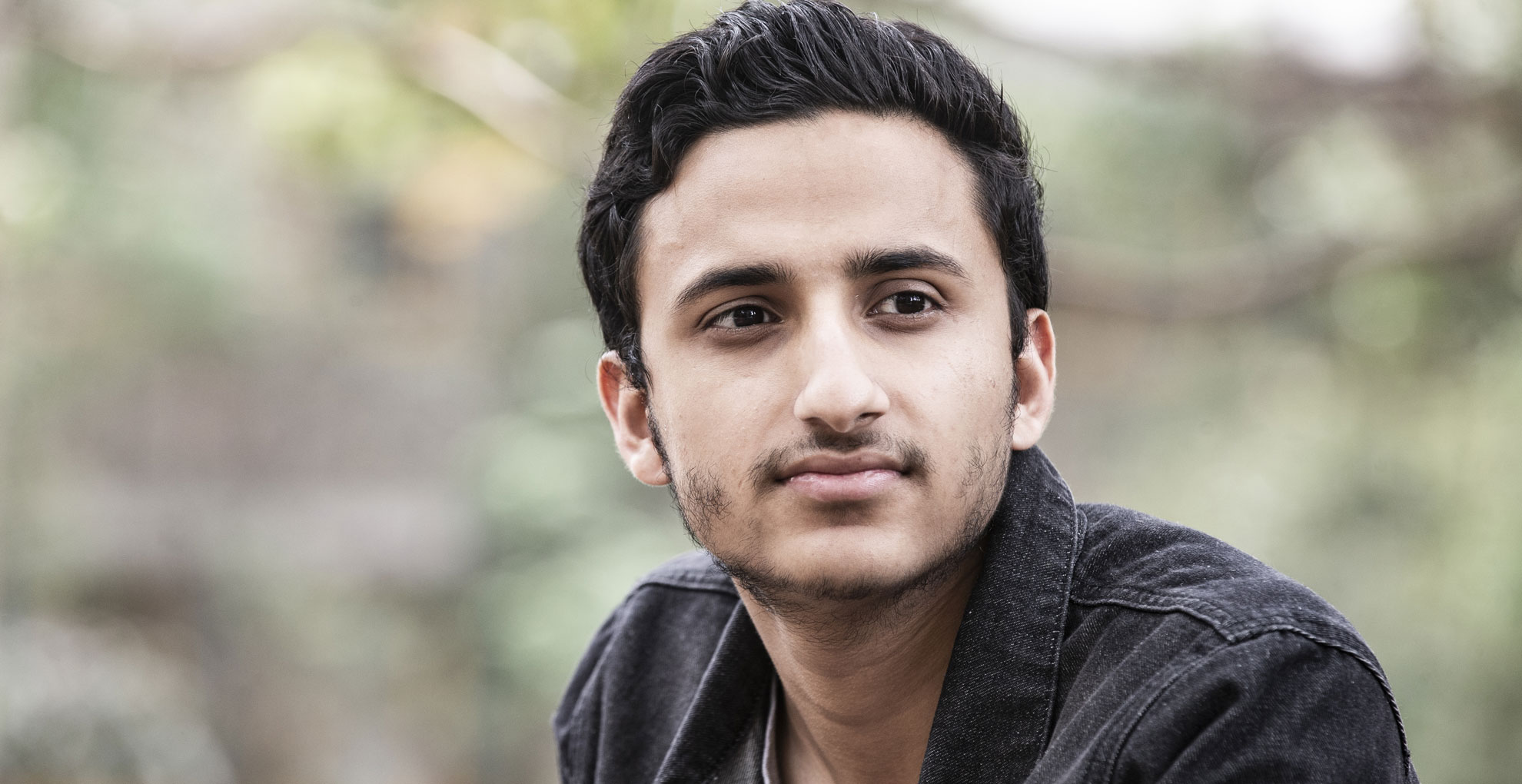May 4, 2020
Human rights activist awarded Robert Hope Memorial Prize
UOW graduate and aspiring doctor Narayan Khanal receives prestigious student medal
Narayan Khanal’s view of the world was formed at an early age. He spent the first decade of his life in a refugee camp in Nepal, where he lived with his family, who are Lhotshampa, after fleeing ethnic cleansing in Bhutan.
It was there that Narayan was exposed to the fragility of life and the importance of health and privilege in determining one’s trajectory.
Narayan came to Australia at the age of 12 as a refugee, settling with his family in the regional NSW town of Albury. He had to learn English and find his place in this new and, oftentimes strange, country.
Just over 10 years later, Narayan has graduated from the University of Wollongong (UOW) with a Bachelor of Medical and Health Sciences with Distinction.
He has also been awarded the 2019 Robert Hope Memorial Prize, UOW’s most prestigious honour for students.
The medal celebrates the life and contribution of the University’s founding Chancellor, Robert Hope.
It is awarded to a student who demonstrates exceptional academic performance, outstanding leadership, and a significant contribution to the University or wider community.
To say that Narayan has come a long way from those early years in Nepal would be an understatement.
He has undergone the type of life experiences that can make or break a person, particularly at a young age.
But for Narayan, these experiences, the triumphs and the tragedies, have coalesced into a determination to pay it forward and to help others.
“I am really proud of myself and what I have been able to accomplish,” he said, of being awarded the Robert Hope Memorial Prize.
“My family are very proud of what I have been able to achieve in a really short time. I only really started learning English at 12. The journey from high school to university was a huge challenge in and of itself, so to be able to finish with UOW’s highest honour is amazing.
“I’ve had an immense amount of support from my family. All my family members have been such strong supporters and mentors to me, despite having greater challenges to deal with as a result of being older members in the family.”

Narayan outside the United Nations Building in Geneva, Switzerland. Photo: Supplied
His years growing up in a camp in Nepal and his experiences as a refugee are what inspired Narayan to consider a future in medicine.
This further crystallised when Narayan’s family settled in Albury and he saw the divide between access to health in rural versus non-rural areas, as well as between Indigenous and non-Indigenous people.
Now studying at UOW’s Graduate Medicine to become a doctor, he has remained focused on humanitarianism and public health.
“There were so many diseases and deaths in the refugee camps that were caused by poor hygiene and poor health infrastructure. People died from really minor conditions that could have been prevented with better policies and healthcare,” he said. While he wasn’t quite sure what he wanted to do in high school, Narayan’s interest in human rights and health intensified when he arrived at UOW.
He formed the UOW Multicultural Society, which now has more than 300 students from all walks of life. He started the society with the idea of being able to share food, hold events, and share culture and language with each other.
“UOW has thousands of students from all over the world, and there was no way of bringing all these people and different ideas together, I wanted establish something at UOW that would facilitate friendships and connections with people from different cultures and really, provide opportunity to get to know one another better through dialogue, sharing of cultures and languages.”
Narayan’s commitment to helping others has gained considerable recognition during his time at UOW, and also provided incredible opportunities to contribute to the international conversation around the rights of refugees.
In 2018, he was named a finalist in the Australian Human Rights Commission’s Young People’s Human Rights Medal. The following year, he was Wollongong’s Young Citizen of the Year.
As the NSW representative for MYAN (Multicultural Youth Advocacy Network), the peak body representing young refugees and migrants, Narayan received a scholarship by the United Nations High Commissioner for Refugee (UNHCR) to attend a global summit of refugees as well as the 38th session of the United Nations Human Rights Council in Geneva, Switzerland.
During his time at UOW, Narayan spent a semester living and studying abroad in Japan through New Colombo Plan Scholarship in 2019. The New Colombo Plan is a signature initiative of the Australian Government with the aims of lifting the knowledge of Indo-Pacific region in Australia.
The same year, Narayan also received scholarship to attend the One Young World Summit in London, which brought together up and coming leaders who are actively working for social change and UN 2030 SDGs from every country in the world.
One of the highlights of the event for Narayan was being invited for intergenerational dialogue with summit “elders” such as Sir Richard Branson and Mary Robinson, the former president of Ireland, regarding the rights of refugees.
“It was an incredible experience to be able to share the challenges of being a refugee with people in positions of power,” he said.
“I talked about the need to uphold rights, foster empathy and create welcoming places for refugees and forcibly displaced people and ways in which we can achieve this and the importance for intergenerational dialogue to occur.”
Narayan is working to change the perception of refugees, particularly young refugees, and the contribution they bring to the community and to Australia as a whole.
He is part of a NSW State Government working group, developing a policy paper on the resettlement of refugees and providing an insight into his own journey.
“Part of what drives me is changing the negative narrative about refugees. Often the way young refugees are talked about in the media is quite negative and largely driven by fearmongering and we don’t actually get to hear from young people themselves about their achievements, successes and struggles” he said.
“My own experience of adjusting to life in Australia has been largely positive. But there is always room for improvement.”

Narayan with Sir Richard Branson at the One Young World Summit in 2019 in London. Photo: Supplied
One of the tenets of the Robert Hope Memorial Prize is leadership, which seems to come naturally to Narayan. He believes leadership comes from allowing others to shine and to realise their own potential.
“Leadership, to me, means being able to inspire others. I don’t think you need to be at the forefront of everything or have all the answers, but you have to inspire others to believe in themselves and to change whatever it is that they are passionate about.
“I’ve learnt so much from building a community where you have to interact with others, and giving others the opportunity to build those skills as well.”
As Narayan continues on his path into medicine – he has not decided what field he will specialise in yet, but said it will likely focus on rural health – he is continuing his advocacy for health and refugee rights.
It is clear that there is much more to come from this empathetic, compassionate and deeply inspiring graduate.
“I’ve been very fortunate, I’m incredibly thankful to UOW, academic staff, mentors and friends that I’ve made and to the people who have supported me to get to where I am. Being awarded the Chancellor Hope Medal is a reminder that what I am doing is worthwhile. It has inspired me to continue, and it keeps me humble.”
